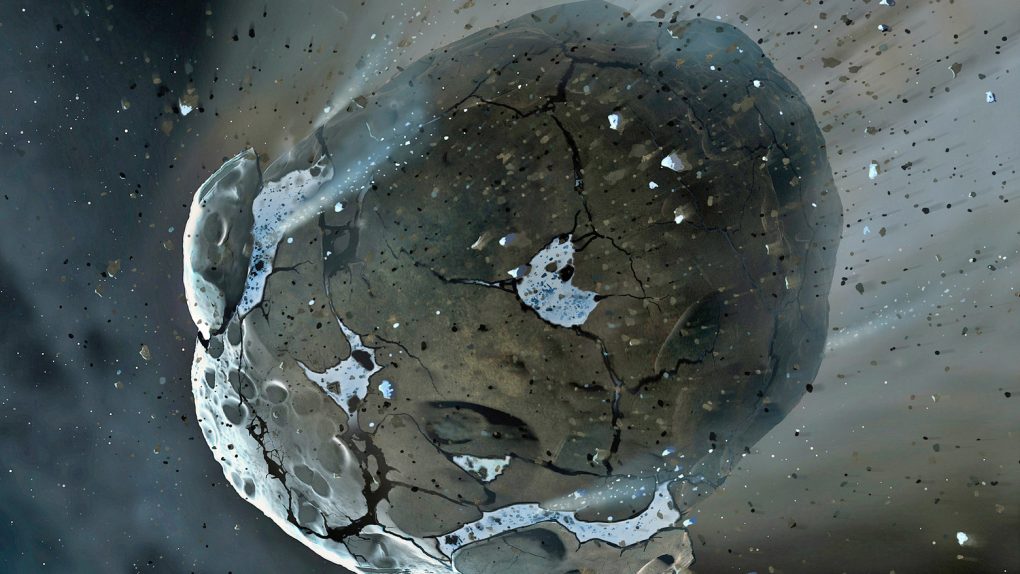- Researchers studying meteorites from a large asteroid between Mars and Jupiter have discovered evidence that an event known as the late heavy bombardment happened differently than scientists believe.
- The time period was marked by a large number of impacts on planets like Earth, but it may have happened much earlier than previously thought.
- The study suggests that the late heavy bombardment may have been more gradual and not nearly as intense.
If you were to rewind time several billion years you’d find Earth to be, well, not quite what it is today. In fact, most of the planets in our solar system would have looked a whole lot different, and there was a lot more debris circling our little stellar neighborhood than there is today. A period known to scientists as the late heavy bombardment was thought to have taken place around 3.9 billion years ago, and it was marked by increased asteroid impacts from objects in the asteroid belt between Mars and Jupiter.
Now, new research throws that timeline into question, suggesting that the late heavy bombardment either happened a lot earlier than anyone thought or that it may not have really happened at all, at least as far as researchers have described it.
The research, which was published in the journal Earth and Planetary Science Letters, focuses on the space rock known as 4-Vesta. It’s the second-largest object in the asteroid belt and it can tell us a lot about the turbulence our system went through over billions of years.
“Meteorites provide us with the earliest history of ourselves,” Professor Yuji Sano, co-author of the study, said in a statement. “This is what fascinated me about them. By studying properties, such as radioactive decay products, of meteorites that fell to Earth, we can deduce when they came and where they came from. For this study we examined meteorites that came from Vesta, the second-largest asteroid after the dwarf planet Ceres.”
The researchers studying the asteroid found that it was littered with impact markers, which isn’t unusual for an asteroid of its size. However, when taking a closer look at meteorites that are known to have originated from the larger body of Vesta, the team found signs that it was under a “heavy bombardment” between 4.15 billion and 4.4 billion years ago, which is much earlier than the late heavy bombardment was thought to have occurred.
This could indicate that the late heavy bombardment wasn’t a condensed period of time where a great many impacts happened, but rather a more prolonged period of time where impacts happened all across our system with regularity.
“That Vesta-origin meteorites clearly show us impacts earlier than the LHB raises the question, ‘Did the late heavy bombardment truly occur?'” Sano suggests. “It seems to us that early solar system impacts peaked sooner than the LHB and reduced smoothly with time. It may not have been the cataclysmic period of chaos that current models describe.”








